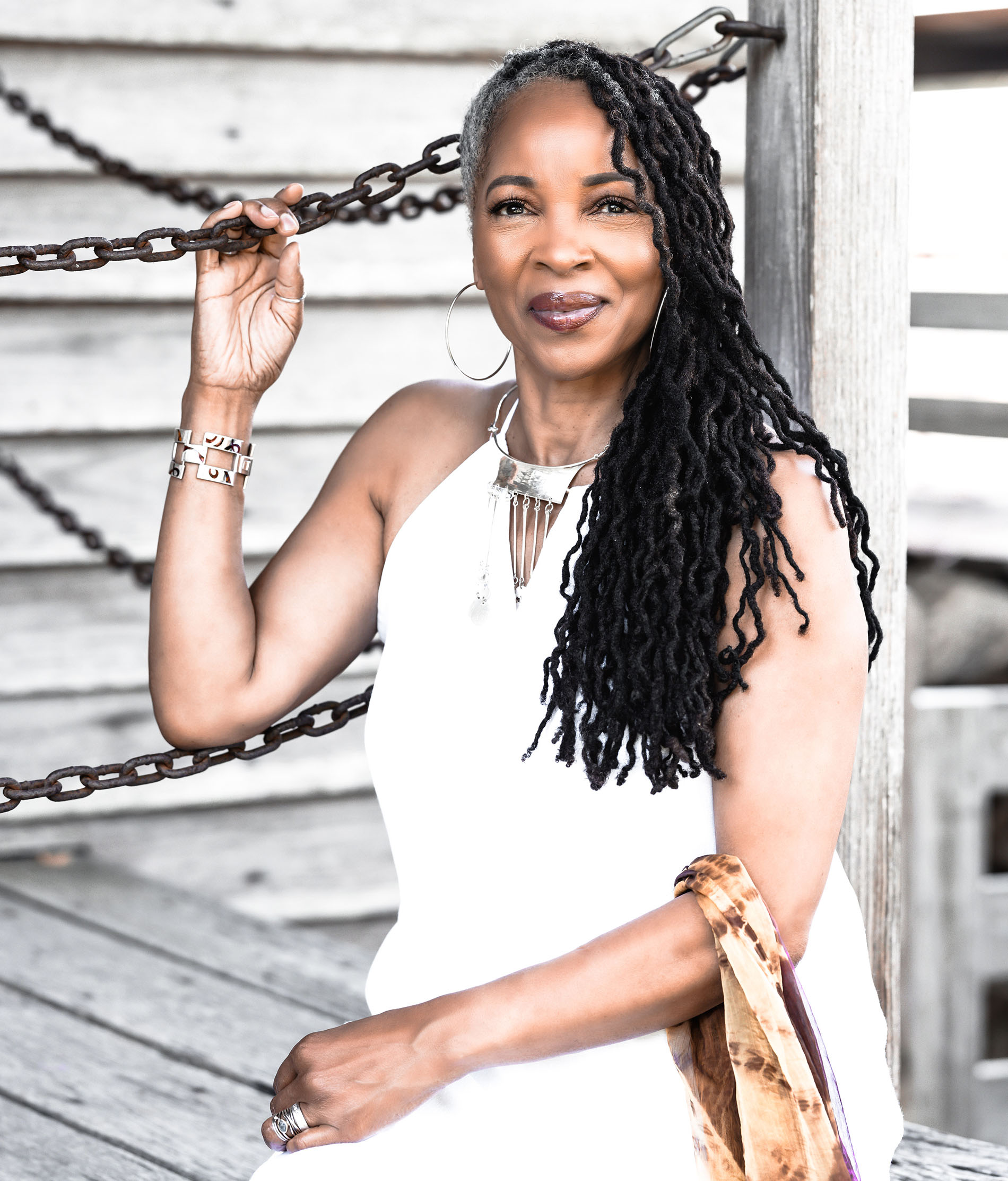Music student Ravi Dev sits at the piano with Lois Deloatch A.M.’08 as they run through jazz standards. At first it feels like a lesson. Deloatch, a seasoned vocalist, tells the Berklee College of Music contemporary writing and production major to play with more swing. She gives pointers on how to make solos interesting and dynamic. Then, almost imperceptibly, their session turns from instructive to collaborative. Deloatch shows Dev the charts for an original song she’s working on. Dev responds with chord shapes Deloatch hasn’t tried. She’s excited. Now they’re simply playing music together.
Deloatch is welcoming Dev to her Durham home as a peer, much as she has been welcomed by musicians she admired.
“People have always been so generous,” she says. “I want to just sort of pay that forward.”
Deloatch released her latest album, “Love Always,” on March 15. The songwriter and vocalist wrote many of its originals during COVID. “Forty First Cousins” was written for a cousin who died early in the pandemic. “In the cool evening breeze / in the dance of falling leaves,” Deloatch sings. “In my mind, I see you smiling at me.” She wrote “Friendly Fire” for two of her brothers who fought in the Vietnam War, only to die of leukemia after exposure to Agent Orange. “Occasional Brilliance” explores the messiness of humanity, based on something clever Deloatch’s husband, Ed Gomes, once said. “Yeah,” quipped Gomes, senior associate dean for Trinity Technology Services at Duke, when someone complimented a piece of jewelry he had given Deloatch. “Occasionally I’m brilliant.”
Deloatch says she owes her creative spark and vocal abilities to a childhood in rural Northampton County, which hugs the Virginia border in northeastern North Carolina.
“There was always some space and time to dream and think, and for your imagination to run wild,” she says.
The seventh of 10 children, Deloatch grew up surrounded by family and music. At an early age, she sang in church and at elementary school. There were no instruments in the classroom, she explains, so in music class the students sang.
“My family had a band growing up,” Deloatch says. “I was too young to be in the band at the time, but my older sister was a singer.”
While her older siblings played school dances, birthdays and parties as the Destructions, the younger Deloatch honed her voice. By high school, her chorus teacher entered her into a singing contest in the nearby town of Ahoskie, North Carolina. She placed high, but was especially honored that her choral teacher chose her to represent the school.
“From the time I started singing publicly at 6 or 7 years old, I've never stopped,” Deloatch says.
Through several staff and administrative roles at Duke, Deloatch noticed something similar in her peers. They had vibrant artistic lives. Late Director of Jazz Studies Paul Jeffrey was consistently supportive. Deloatch’s former supervisor, late Duke Libraries Director of Development Myrna Jackson, was a poet.
“When I was launching a professional music career, she came to my first show,” Deloatch says, and she is warmed by the memory.
Indeed, Duke connections are as evident as the low end on Deloatch original composition “Love Always,” played by upright bassist John Brown. Brown – Deloatch’s longtime friend and frequent collaborator – is Duke’s vice provost for the arts.
“John and I share that common vocabulary – not just jazz, but we speak eastern North Carolina. We speak church music,” Deloatch says. “He knows that the bass really is my very favorite instrument.”
But on this afternoon, Deloatch is sharing her musical vocabulary with Dev. And earlier in the summer, she did the same with track and field athlete Moorea Mitchell ’24, who is responsible for the third-best hammer throw in Duke history. Mitchell already has an excellent voice, Deloatch says. She is, however, introducing the younger vocalist to the classics – to Sarah Vaughan, Ella Fitzgerald, Billie Holiday – and helping Mitchell build a repertoire.
“She'll be back in July, and we'll get together,” says Deloatch. And the community grows.
